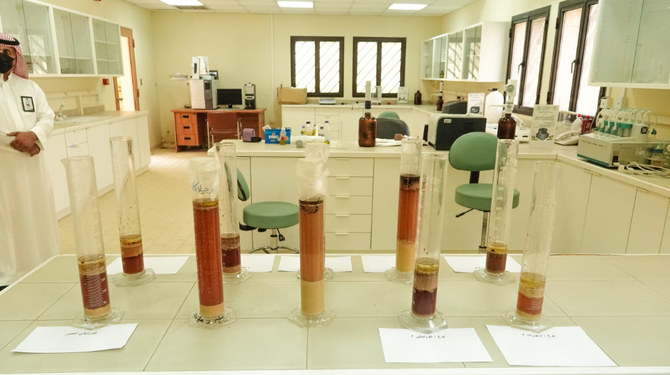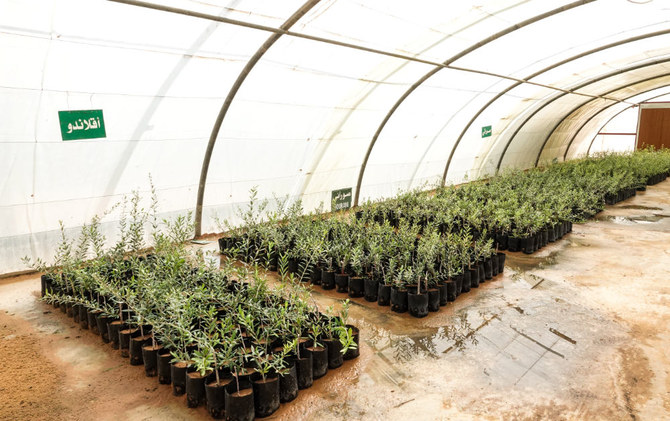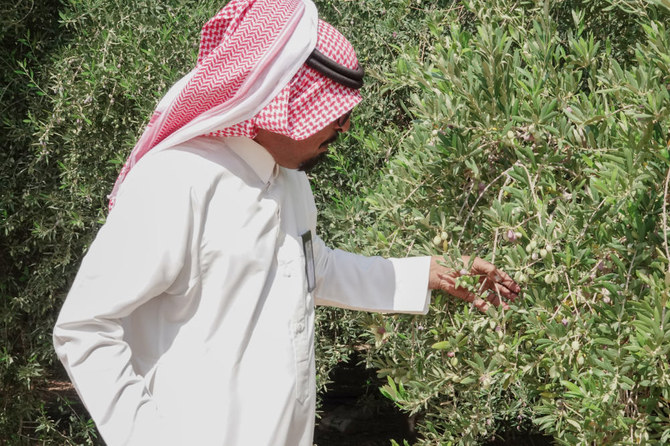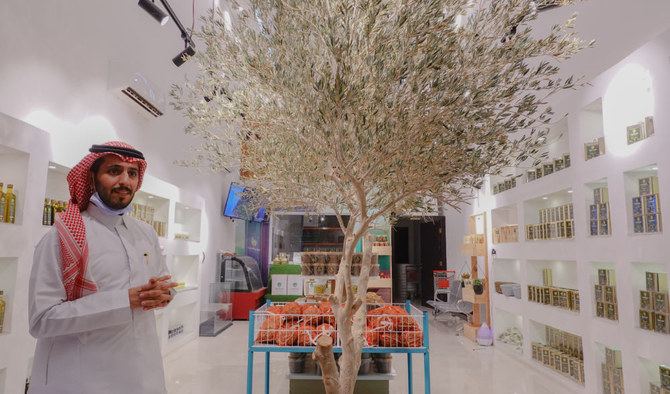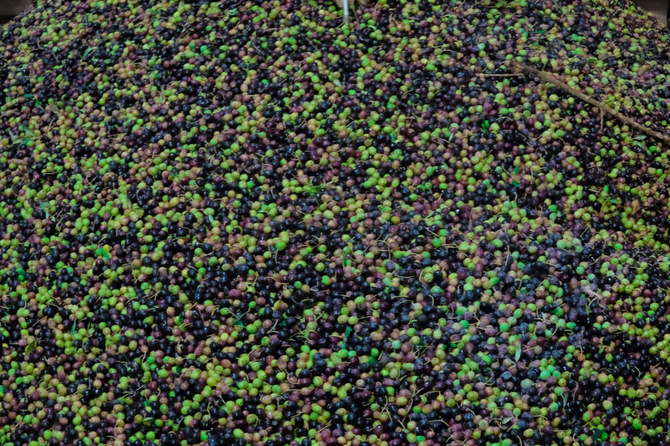JOUF: Throughout history, olive trees and the oil derived from their fruit have been vital, almost sacred, resources for many societies.
From the ancient Egyptians to the Greeks and the Romans, and continuing through to the modern age, olives and the benefits they offer have been of monumental importance to many. In addition to its use in cooking, olive oil is used for medical purposes, to treat conditions such as constipation, high cholesterol, high blood pressure and blood vessel problems associated with diabetes, and as an ingredient in cosmetics and perfumes, among other things.
Saudi Arabia’s northern Jouf region has about 30 million olive trees across 7,300 hectares. The soil there is particularly fertile and well-suited to growing the trees, which produced thousands of liters olive oil annually. It is no surprise, then, that the region is known as the Kingdom’s “olive basket.”
Given the Kingdom’s status in the olive oil industry, authorities and producers in the country work hard to promote the quality of the oil produced there, and to develop the industry.
Musa Ahmad Al-Juraid, from the Camels and Livestock Research Center and Olives Unit in Sakaka, told Arab News that more than 30 varieties olive trees grow in Jouf, imported from France, Spain, Italy, Greece and Turkey. Two of the best-known varieties in the region are Sorani and improved Nibali.
“Some of these varieties are suitable for oil production and some are used for fermented or pickled olives,” he said.
Traditional varieties of olive trees are slow-growing and only begin to bear fruit seven or eight years after planting.
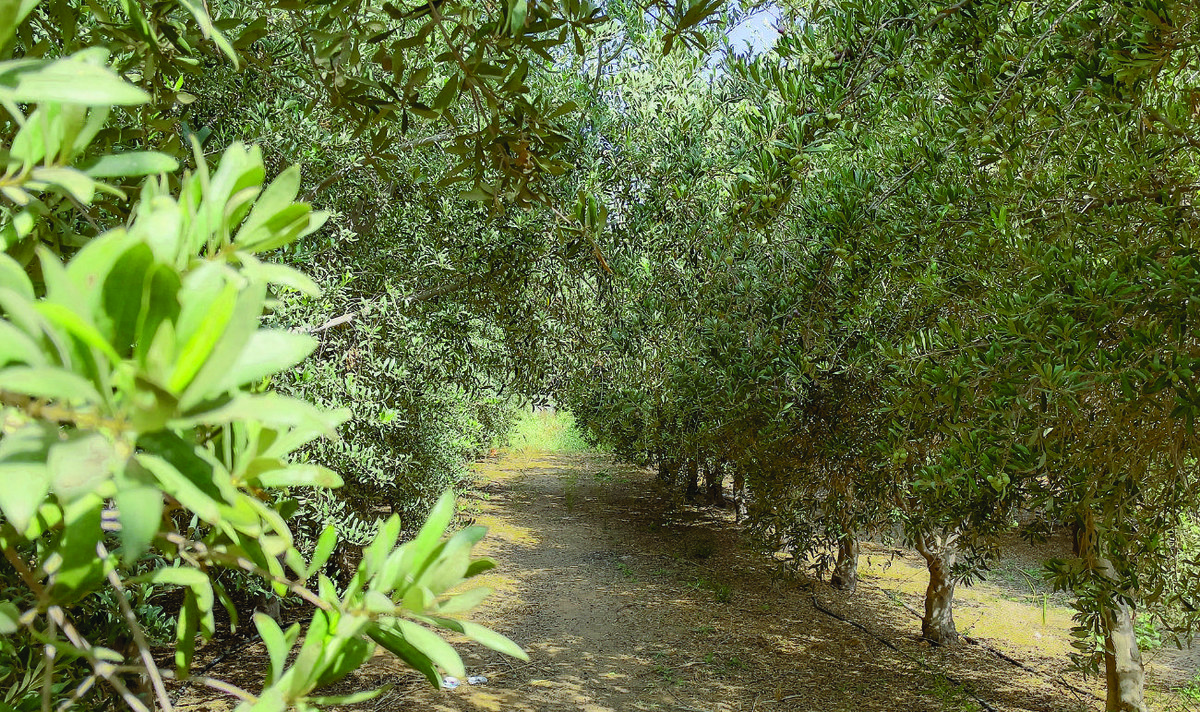
Saudi Arabia’s northern Jouf region’s soil fertility supports the growth and production of olives. (AN photos by Huda Bashatah)
“This type requires leaving at least a 30-foot space between every tree to encourage healthier growth and allow the roots to expand,” said Al-Juraid. “Olive production continues for a lifespan of 40 to 50 years, and these trees requires manual harvest.
“The other type of trees are hybrid olive trees, which are more suitable for automated harvesting. They are cultivated by combining two types of trees and usually require just one meter of space between each tree. They begin to bear fruit in the second year after planting and, unlike veteran olive trees, the production lifespan of these varieties varies from one to 15 years.”
Al-Juraid explained that harvested olives must be collected in ventilated boxes to prevent oxidation, and are taken immediately to a processing plant for pressing. The color of the olives as they ripen indicates the quality of the fruit and determines when they should be collected.
FASTFACTS
• Olive trees can recover even after burning and are believed to be the oldest type of cultivated tree.
• According to The Science Times, olive trees can live as long as 1,500 years and have an average life span of about 500 years. Hence, olive trees have been adopted as a symbol by countries such as Palestine, Syria and Jordan, and the Mediterranean Basin.
“Olive fruit must be harvested as soon as it is yellowish-green to pinkish-green,” Al-Juraid said. “Once it has turned fully black it will contain more acidity and less quality.”
The harvesting season begins at the end of September and continues until January. When it comes to grading the quality of olive oil, there are local and international standards. The quality is determined by the production method, acidity levels, flavor and aroma. Shoppers are familiar with the choice between virgin olive oil and extra-virgin olive oil at the store, but what exactly is the difference?
“What makes extra-virgin olive oil the best and top ranking is the temperature of pressing, the clarity, and it is low in or free from acidity,” said Al-Juraid. “The fact that it is extracted by cold-pressing allows it to maintain the best of its natural aroma and flavor. Setting the press machine to a higher temperature to extract a greater quantity of oil would highly alter the quality of the extracted oil, its taste and aroma.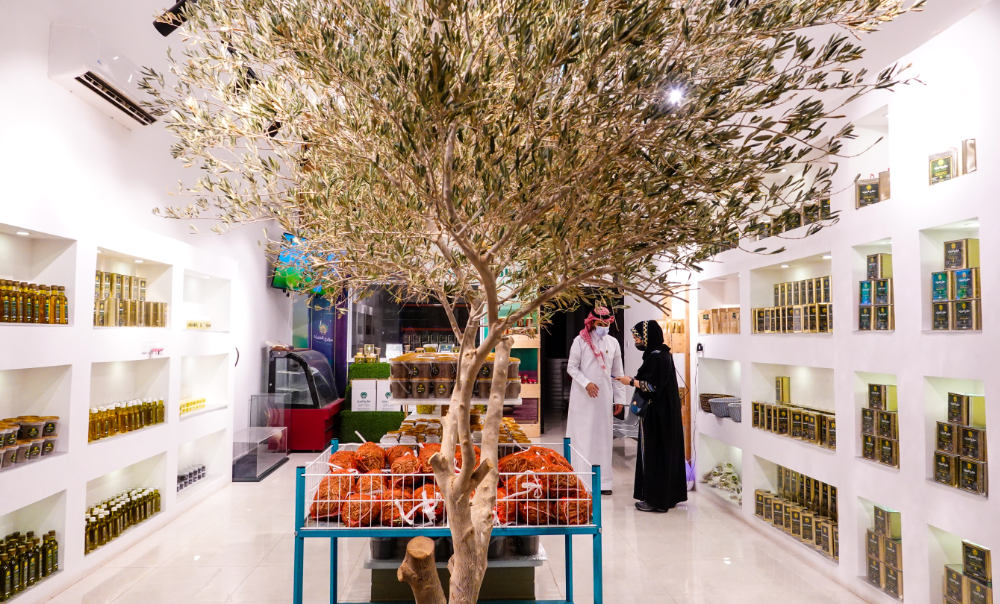
“Extracting virgin olive oil requires other steps such as washing, decantation, centrifugation and filtration, which gives the oil a milder taste and makes it rank second, according to the acidity flavors that might accrue due to the longer process.
“The less acidic, the better the quality. Olive oil with a high level of acidity is not suitable for human food consumption. Instead it is used for soaps and various skin treatments.”
Saud Abdulamohsin Al-Juraid, the owner of Al-Juraid farms, said he inherited his love of olive farming from his late father, who worked in the industry for 25 years. His trees grow in huge orchards in a very fertile area called “Busita.” Al-Juraid’s family is one of the best known producers in the region, and its extra-virgin olive oil is considered by some to be the best in the area. They are also the leading domestic supplier in the Kingdom. The new generation in the family business is ambitious and keen to expand the product line by diving deeper into cosmetics and using the remains of the olives after the oil is extracted.
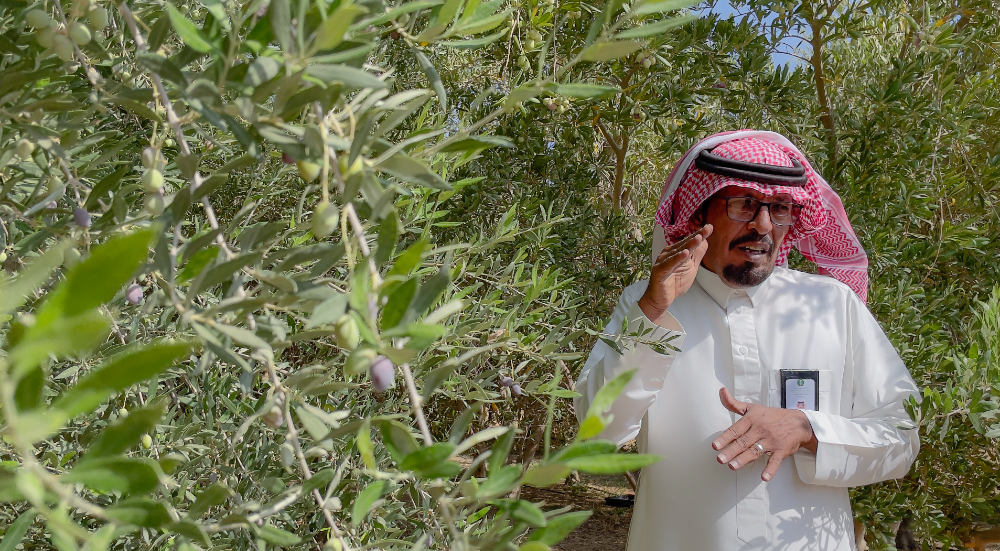
Musa Ahmad Al-Juraid. (AN photos by Huda Bashatah)
“I call it the immortal tree; that is why every part of it is useful, from leaves to roots, in addition to olive oil,” said Al-Juraid. “We have produced soaps, antioxidant body soap, lip scrubs, perfumes, lotions — even the leaves are used for diabetes control.”
The three main varieties of olives grown on Al-Juraid farms are Sorani, improved Nibali and Spanish.
“The production of olives decreases in quantity from one year to the next,” said Al-Juraid. “On the other hand, the quality of the olive oil is improved.”
All of the family — brothers, sisters and their mother — work in the business. They developed their knowledge and skills by exchanging experiences with some of the leading farmers in the country.
“That helped me get a new perception of this career,” said Al-Juraid. “It requires patience, as we rely on a one-season harvest, and I am glad to tell you that most of our new product lines are planned and made by my mother and sisters.”
The olive oil industry in Jouf region is growing but financing the process requires huge capital investment. Meanwhile, the global growth in e-commerce has prompted many olive oil producers and brands in the region to market and sell their products online.
Asrah is a pioneering Saudi digital platform for agricultural products that works with Jouf municipality’s laboratory and olive farmers to support the domestic promotion and distribution of olive oil and related products. These are tested and certified by the laboratory to monitor acidity levels and suitability for human consumption.
Consumers can use the Asrah app or website to browse and buy products and have them delivered. The platform also promotes other agricultural products from the Kingdom including dates, coffee beans, and honey.




